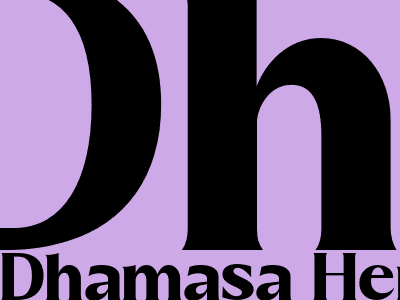Dhamasa Herb: A Comprehensive Guide to Its Medicinal Uses, Benefits, and Side Effects
Introduction
Dhamasa herb (Plectranthus edulis), also known as Mexican mint or Cuban oregano, is a member of the Lamiaceae family. It is widely used in traditional medicine for a variety of health conditions, including digestive issues, respiratory problems, and pain relief. In recent years, scientific research has supported some of the traditional uses of Dhamasa herb and identified additional potential benefits. This comprehensive guide will explore the medicinal uses, benefits, and side effects of Dhamasa herb.
Traditional Uses of Dhamasa Herb
Dhamasa herb has been traditionally used for centuries to treat a wide range of ailments. Some of the most common traditional uses include:
- Digestive issues: Dhamasa herb is often used to relieve digestive symptoms such as gas, bloating, and indigestion.
- Respiratory problems: The herb is also commonly used to treat respiratory conditions such as coughs, colds, and asthma.
- Pain relief: Dhamasa herb is said to have analgesic properties and is traditionally used to relieve pain from headaches, muscle aches, and menstrual cramps.
- Antibacterial and antifungal properties: Dhamasa herb has been used traditionally to treat infections caused by bacteria and fungi.
Scientific Evidence for the Medicinal Uses of Dhamasa Herb
While Dhamasa herb has been used in traditional medicine for centuries, scientific research is still ongoing to fully understand its medicinal properties. However, several studies have provided evidence for some of the traditional uses of the herb.
Digestive Benefits
Studies have shown that Dhamasa herb may have antispasmodic and carminative properties, which can help to relieve digestive symptoms such as gas, bloating, and indigestion. One study found that Dhamasa herb extract significantly reduced the frequency and severity of flatulence in patients with irritable bowel syndrome (IBS).
Respiratory Benefits
Some research suggests that Dhamasa herb may have bronchodilatory and expectorant properties, which can help to improve respiratory function. One study found that Dhamasa herb extract significantly reduced coughing and wheezing in patients with asthma.
Pain Relief
Dhamasa herb has been shown to have analgesic and anti-inflammatory properties, which may help to relieve pain from headaches, muscle aches, and menstrual cramps. One study found that Dhamasa herb extract significantly reduced pain intensity in patients with tension headaches.
Antibacterial and Antifungal Properties
Laboratory studies have shown that Dhamasa herb extract has antibacterial and antifungal activity against a variety of microorganisms. However, more research is needed to determine the effectiveness of Dhamasa herb for treating infections in humans.
Benefits of Dhamasa Herb
Based on scientific evidence and traditional uses, Dhamasa herb may offer a variety of health benefits, including:
- Improved digestion: Dhamasa herb may help to relieve digestive symptoms such as gas, bloating, and indigestion.
- Reduced respiratory symptoms: The herb may help to improve respiratory function and reduce coughing and wheezing.
- Pain relief: Dhamasa herb may help to relieve pain from headaches, muscle aches, and menstrual cramps.
- Antibacterial and antifungal properties: Dhamasa herb may help to fight infections caused by bacteria and fungi.
- Antioxidant properties: Dhamasa herb contains antioxidants that may help to protect cells from damage.
- Improved sleep: Some studies suggest that Dhamasa herb may help to improve sleep quality.
Side Effects of Dhamasa Herb
Dhamasa herb is generally considered safe when used in moderation. However, some side effects may occur, including:
- Digestive upset: Dhamasa herb may cause digestive symptoms such as nausea, vomiting, and diarrhea if taken in large doses.
- Allergic reactions: Some people may be allergic to Dhamasa herb.
- Drug interactions: Dhamasa herb may interact with certain medications, such as blood thinners and sedatives.
Precautions and Warnings
Before using Dhamasa herb, it is important to talk to a healthcare practitioner, especially if you have any underlying health conditions or are taking any medications. Dhamasa herb should not be used by pregnant or breastfeeding women.
Conclusion
Dhamasa herb is a versatile herb with a wide range of potential medicinal uses. Scientific research has supported some of the traditional uses of the herb, including its benefits for digestion, respiratory function, pain relief, and antibacterial and antifungal activity. However, more research is needed to fully understand the safety and effectiveness of Dhamasa herb for specific health conditions. As with any herbal remedy, it is important to use Dhamasa herb with caution and under the guidance of a healthcare practitioner.

Comments